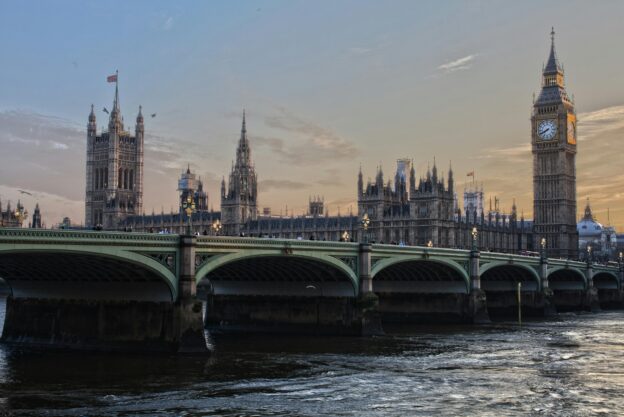GK Senior Adviser James Allan analyses the government’s agriculture policy plans and the opportunities that could arise for investors.
With the Labour government now in power, some may wonder if the food, farming and agriculture sectors are about to see a major shift – a shift from being an important constituent of the then Conservative administration of 14 years to lower down the political list of priorities within Labour’s “mission led” government.
The Autumn Budget on 30 October will partly address this concern and end the speculation about potential changes to agriculture property relief and Defra’s agricultural budget. But with a Party of a different political hue now occupying the corridors of power, it’s worth considering whether Labour’s pro-growth messaging of “political stability” to attract private sector investment extends to the food, farming and agriculture (FFA) sectors, and if so, to what extent.
Why Labour must harvest more than just political stability
To attract private investment, ‘political stability’ alone is not sufficient – it needs to be backed up by policy substance and public investment, and with long-term strategic thinking. From aquaculture to viticulture, solar farms to biodiversity, food pricing and standards to foods high in fat, salt and sugar, there are many agendas and issues at play. These will all be playing out against a political backdrop with a renewed sense of momentum, a government with a greater willingness to intervene in the name of public health, an entire mission focused on decarbonisation, and a tight fiscal environment impacting the potential for significant public investment.
The first 100 days for the new government have proved that governing isn’t easy. Political pinch points and missteps aside, a common thread in the criticisms levelled against Labour ministers has been the absence of a defining vision for the sector to provide the framework for policy thinking and development; not least for food security which is set to become one of the defining political issues of the parliament. Without this overarching vision for the sector, the ability for businesses to plan their own investment and growth strategies becomes much more difficult and limits the ability of government to ‘crowd in’ private capital to drive growth.
The sowing of early seeds positive for UK investors
There are a few positive and recent developments of note. First, the Farming Minister, Daniel Zeichner, has confirmed the government’s intention to introduce secondary legislation which will bring to reality the regulatory regime of the Genetic Technology (Precision Breeding) Act 2023.[1] This will help to simplify the authorisation process for bringing new products to market from 1o years to an estimated 12 months.[2] Investors should note the government’s familiar caveat of “as soon as parliamentary time allows” which means the introduction of secondary legislation is unlikely to be imminent and will compete with an already packed legislative calendar. Speeding up routes to market will be welcomed by investors backing early-stage or growth-stage companies involved in gene editing, crop efficiency technologies, or those innovating in climate-resistant crop varieties. The streamlined regulatory environment lowers barriers, creating the potential for significant returns more quickly. Zeichner has also confirmed 43,000 Seasonal Worker visas for the horticulture sector and 2,000 for the poultry sector for 2025. Accompanied by a few additional measures to simplify free-range labelling requirements, this signals that the Defra ministerial team is actively listening to the sector and willing to flex policy to meet operational challenges and remove barriers to growth.[3]
Secondly, the government has secured access to the US market for British beetroot farmers, boosting export opportunities and attributed to the efforts of DEFRA’s agri-food attaché in the US.[4] This establishes an interesting precedent for securing market access outside of more formal and comprehensive free trade agreements, and creates attractive investment opportunities in companies that produce export-ready, high-quality British agricultural goods. Crucially, produce by produce access deals averts the political tightrope of negotiating comprehensive trade deals, not least one with the US which has long been the envy of previous Conservative Prime Ministers. For investors and argi-businesses on the lookout for export opportunities, engaging with DEFRA’s eleven attaches located in British embassies and consulates in Canada, Mexico, Brazil, Kenya, The Gulf, India, Japan, China, Thailand and Vietnam will be important to replicate this success.
Thirdly, there is recognition in government of the long and fraught dissatisfaction among farmers concerning the future viability of the agricultural sector.[5] The Labour ministerial team perceives a lack of confidence among farmers as the rationale for needing to optimise Environmental Land Management schemes as part of a wider new deal for farmers. The precise details of this new deal have yet to be clarified but the government has signalled a focus on:
- Trade deals undercutting low welfare and low standards
- Maximising public sector purchasing power to back British produce
- A land-use framework to balance nature recovery and long-term food security
A latter focus on food security will be important for investors seeking opportunities which align with Labour’s aim to make the UK more self-reliant in the food and energy sectors, but especially where technological innovation contributes to more efficient and resilient farming processes and produce. Defending their record in government and playing in safe political territory, this was a focus of a recent opposition day debate in Parliament where several Conservative MPs made the case for greater public investment in new farming technologies to safeguard the nation’s food supply.[6] However, as noted by DEFRA Secretary, Steve Reed, the government’s ability to do so is up for consideration in the upcoming Budget and next year’s Spending Review and therefore competes with other public spending priorities.
A wet start for the farming sector
This year’s harvest of the five key crops – wheat, winter and spring barley, oats and oilseed rape – saw a decrease of 15% compared to the 2023 harvest with an estimated loss of £600m in revenue for English farmers due to considerable wet weather.[7] The impact has extended beyond these core crops with a south Devonshire winemaker reporting a 70% decrease in expected volumes compared to 2023 and another winemaker noting heightened disease pressures due to constant rain. For the British viticulture industry, the wet weather year of 2024 follows a boom in capital investment and overseas wine producers buying into the UK as a hedge against climate change. Rural and farming communities might not be this government’s traditional supporter base but neglecting the sector – with its sub-sector growth gems like viticulture – risks undermining long-term food security and economic growth not just farmers but the broader economy and consumers alike.
[1] DEFRA, New legislation to support precision breeding and boost Britain’s food security (Sept-23 link)
[2] DEFRA, Impact Assessment – Impact Assessment – Genetic Technology (Precision Breeding) Bill (Mar-22 link)
[3] DEFRA, Government provides certainty to horticulture and poultry businesses (Oct-24 link)
[4] DEFRA, British beetroot growers to put down roots in US market (Sept-24 link)
[5] DEFRA, Government to restore stability for farmers as confidence amongst sector low (Aug-24 link)
[6] House of Commons, Opposition day debate on farming and food security (Oct-24 link)
[7] Energy & Climate Intelligence Unit, England has second worst harvest on record with fears mounting for 2025 (Oct-24 link)






